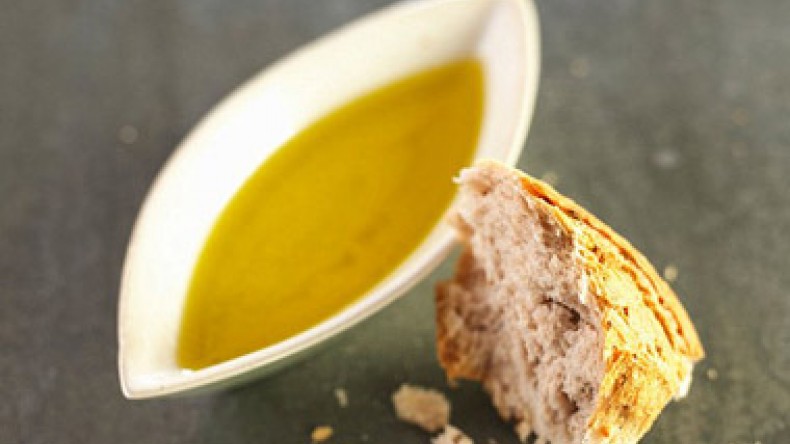
Dunking your bread in olive oil could cut your heart attack risk in just six weeks
Dunking your bread in olive oil could cut your heart attack risk in just six weeks, say scientists.
Sophisticated new tests found regular consumption of olive oil dramatically improved chemical signals in the body linked to coronary artery disease, the Daily Mail reports.
A study led by Glasgow University confirms the health benefits of a cornerstone of the Mediterranean diet, especially for those who don’t normally eat olive oil.
The study added just 20mls a day – about four teaspoons - to the diet of healthy adults, which is the amount used in a salad dressing or mopped up by bread during a meal.
But a range of signals for heart disease measured in the urine improved in only six weeks, says a report published in The American Journal of Clinical Nutrition.
Dr Bill Mullen, of the Institute of Cardiovascular and Medical Sciences, said ‘If we are able to identify the early signatures of diseases before they have had a chance to take hold we can start to treat them before they become a problem requiring costly medical intervention.
‘It is the first time this technique has been applied from a nutritional perspective to try to get to the bottom of which food or what ingredient is truly responsible for health benefits.’
Researchers at the Universities of Glasgow and Lisbon and private firm Mosaiques Diagnostics in Germany investigated the effect of olive oil on heart health in a group of 69 men and women who did not normally eat it.
The volunteers were split into two groups and asked to consume 20ml of olive oil either low or high in phenolics every day over a six-week period.
Phenolics are natural compounds found in plants, including olives, thought to be responsible for the protective effect of olive oil.
The research team applied a new diagnostic technology by examining urine samples for a range of peptides (produced by the breakdown of proteins) already identified as biomarkers of diseases such as coronary artery disease (CAD).
Known as proteomics, the technology can pick up altered levels of certain proteins which suggest early signs of disease before symptoms appear.
The results showed both groups saw a big improvement in scores for CAD – the most common form of heart disease.
The system uses a CAD scoring system from 1: a definite case of CAD to -1: the ultimate healthy artery.
The group taking the low phenol olive oil saw a drop in CAD score from -0.5 to -0.8 while the high phenol group saw a reduction from -0.6 to -0.8.
Newsfeed
Videos






























